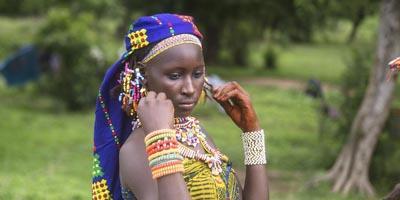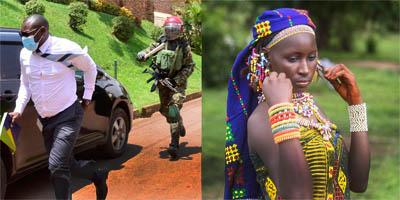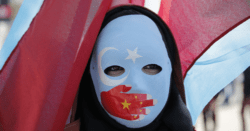If a crime is committed in the northern region of Ghana, most local people will assume that it was committed by a Fulani person. Ahmed Barry, an advocate for Fulani rights, told me that ninety percent of Ghanaians don’t see Fulanis as good people. He said that they face harmful stereotyping, and often labelled as thieves, robbers and rapists. This results in a strong marginalization of their community in Ghanaian society, where they are discriminated against not only socially but also physically.
The consequences of this discrimination are deadly. Fulani villages are destroyed, houses burnt, cattle killed, and innocent men, women and children murdered based on nothing but their Fulani identity.
Fulani people also face daily challenges with Ghanaian authorities. They are often denied of some legal rights, such as the right to citizenship or right to vote and participate in political practices, simply due to their ethnic background. During road checkpoints and police patrols, they may be stopped, wrongfully arrested, blamed for crimes they did not commit and given unfair trials.
The Fulani people, also known as Fula, Fulbe or Peuls, are one of the largest ethnic groups in Africa, widely dispersed across West Africa and the Sahel region. Although they are originally a nomadic population, some Fulani communities are now semi-nomadic or even sedentary. However, many continue to live a more traditional way of life as nomadic pastoralists, migrating seasonally with their livestock for herding and grazing. This transhumance lifestyle has shaped the Fulani cultural identity, but has also created conflict, such as land disputes with settled communities like farmers. The stereotypes they suffer from today root from these conflicts.
Lack of citizenship
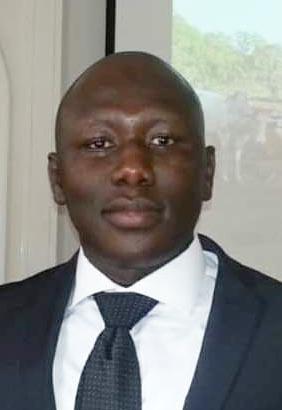
Dr. Kaderi Noagah Bukari, is a Senior Research Fellow at the Department of Peace Studies, University of Cape Coast, Ghana. Dr. Bukari is an expert on Fulani issues, especially their relationship with farmers and other communities, conflicts and social dynamics. He told me that not only do Fulanis in Ghana face physical persecution they are also impacted by discriminatory state policies and local level policies.
They are continuously seen as non-citizens, he said, and are therefore denied their land rights and access to resources. Certain government policies and actions aiming to restore peace are not targeted towards attacking Fulani communities but still end up affecting them, whether it is through displacement or killing their cattle. These state policies aim to impose restrictions on nomadic communities, he said, and that this sedentarization is something that should not be forced.
On the issue of citizenship, he said that the government has recently introduced identity cards for Ghanaian citizens. Without this card, a person can’t vote, start a business or buy land or property. Even though Fulanis have been in Ghana for generations, he says, “Security agencies, in particular immigration officials and other people, will often say that these people are not Ghanaians.”
Dr. Bukari explained that the stereotypes attributed to Fulani people also root from the fact that certain members or leaders of terrorist groups such as the JNIM (Jama’a Nusrat ul-Islam wa al-Muslimin) are ethnically Fulani. In consequence, other communities label all Fulanis as dangerous and violent. He added that, in the Sahel region, there are a number of political groups fighting the terrorists in areas where the government has lost control. Fulani communities are often attacked and killed by these groups, as they are seen as a threat.
This puts them in a very serious situation, Dr. Bukari said. “They have to face terrorists, and at the same time they are being seen by local communities as terrorists. Even the state security and the government see them as terrorists.”
The consequences of this constant discrimination are devastating. Dr. Bukari that the continuous marginalization and attacks are isolating them from the community, and so they are more vulnerable to terrorist recruitment, since they might feel that they do not belong in the country they reside in and find solace in terrorist ideologies. In Ghana, Dr. Bukari says, “The leader of JNIM is calling on them to join his group and fight those who are against them.”
When discussing potential solutions, the words “advocacy” and “media” were repeatedly mentioned. It appears that local media does not talk much about the impacts of the discrimination, tending instead to perpetuate stereotypes about Fulbe people, and the issue is not a factor in Ghanaian politics.
Dr. Bukari said that if politicians were to talk about the discrimination, they would perhaps not get the support of local communities in their election campaigns. He thinks that it is important for the Fulbe to have what he calls a “structured leadership style” that would help them fight for their rights and be recognized on a national level. And to avoid land disputes between farmers and herders, he said that there is a need for dialogue between Fulanis and other local communities.
Stereotyping, physical abuse and discrimination
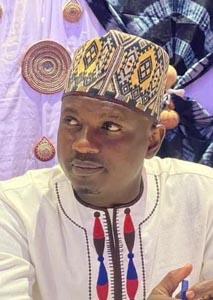
To understand more about the struggles of being Fulani in Ghana, I spoke with Ahmed Barry, an advocate for Fulani rights and education who documents his activities and opinions on the matter on his social media. He is the president of the Fulani Youth Association of Ghana and the national organizer of Tabital Pulaaku International, an NGO that focuses on educating Fulanis on the importance of cattle ranching and children’s education. Our discussion allowed me to understand everyday challenges of Ghanaian Fulanis.
He started by stating the main issue, that Fulanis are not given the same opportunities as any other tribes in Ghana. “We face stereotyping, physical abuse and discrimination of all kinds”. The issue has become so big that some people have formed vigilante groups against the Fulanis in the northern parts of Ghana. Villages have been destroyed, houses burnt down, cattle stolen or killed, and, in some cases, these attacks even result in death.
“Just last week, we buried five of our Fulani brothers in the Upper East region of Ghana,” Barry told me. “If three people commit a crime and one of them is a Fulani, the media headlines will be ‘A Fulani man and two others were arrested.’ They use the Fulani as a scapegoat.”
He said that this discrimination started recently, as large numbers of Fulani herders moved into Ghana because of climate change. Desertification, turning arable soil that was once used for grazing into sand and dessert, forces pastoralist groups to migrate south to more fertile lands. Without a cattle ranching system, the cattle graze on occupied land, destroying people’s crops and disturbing farmers, bringing land disputes and farmer-herder tension and conflict.
Another issue Barry talked about was the struggle to obtain legal documents as a Fulani. For example, he said that his younger sister has been denied a passport because of her Fulani identity. If you mention that you are Fulani, you are treated differently, he said. “Even though my great grandfather was born here, it does not guarantee that I get a passport,” he told me. Unlike with other people, Fulanis will be asked a lot of questions by the authorities and be required to fulfill unrealistic tasks such as finding their great grandfather’s birth certificate.
As an activist for Fulani rights, Barry regularly interacts with people who have been victim of racially motivated attacks. “I just came back from the northern region last week, where I met with over eighty kids who are homeless because their homes have been attacked,” he said. “This is happening every week or two in the northern area of Ghana” Asked about his feelings on the matter, he said, “Honestly speaking, I feel very bad. I am not happy. I am a young person, but I am not happy. I would like to see every Fulani youth become somebody one day.”
Barry believes that the issue comes from a lack of education, miscommunication and fair politics. There is a need for sensitization across the country, he says, where communities sit together, and meetings are organized with traditional chiefs and locals of different tribes to resolve internal conflicts without violence. He also argues for the need of government intervention, especially the development of a cattle ranching system to dissipate farmer-herder tensions. Lastly, he talked about the need for the support of politicians, who often minimize or ignore Fulani persecution. He told me, “Politicians also need to talk to their people, and let them understand that we are part of the same community, and we are looking for peace.”
“What is the offense of this poor boy?” They said, “He is a Fulani man.”
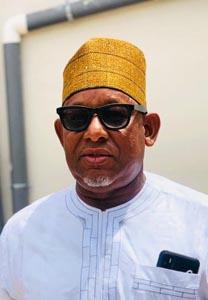
Alhaji Yakubu Musah Barry is the general secretary of Tabital Pulaaku International Ghana and advocate for Fulani rights. He was born in Accra just after the independence of the country and has seen changes in the treatment of Fulani people, beginning a decade or two ago.
Growing up in Ghana, he told me that he had not faced challenges or discrimination due to his ethnic identity. “There was no stereotyping, no marginalization against any one tribe in Ghana, we were all one people” he said, but the issues became relevant due to climate change and the resulting inflow of migrants into the country. Increased crime rates in more rural areas of Ghana have fueled stereotypes and generalizations that now affect the entire Fulani population.
He spoke about the consequences of this prejudice, which he witnesses in his daily life. “There is a time I was driving north, and I got to a police barrier. I saw a Fulani man handcuffed to a tree, so I parked and went to the immigration office and I asked, “What is the offense of this poor boy?” They said, “He is a Fulani man.”
Fulani people are constantly stopped and questioned when traveling in the country based on the suspicion that they are criminals. They are wrongfully arrested, detained and blamed for a crime they did not commit.
The attacks on Fulani villages are often extremely violent, Alhaji Barry said. “If a crime is committed thirty kilometers away from a Fulani village and the suspect is Fulani, another tribe will come to the village and attack and kill the entire village and burn their houses. They will even kill a baby of three months in cold blood.”
When these attacks occur, he says that there is very little support from the authorities. More often than not, the persecutors are not arrested for their crimes, which encourages others to do the same.
Even so, Alhaji Barry believes that, compared to neighboring countries, the issue has just started in Ghana and is still correctable. He calls for the support of international agencies and the media to improve the reputation and views on his community. “We need to step in and educate the local tribes to make them understand that Fulanis have lived in this country for centuries. Let’s all come together! That was how we build this nation. Let the Fulanis feel that they are also citizens.”
The photo of a Fulani girl in traditional attire was taken in Ghana in 2019, by “Amuzujoe,” Amuzu Photography, Accra. CC4.0

